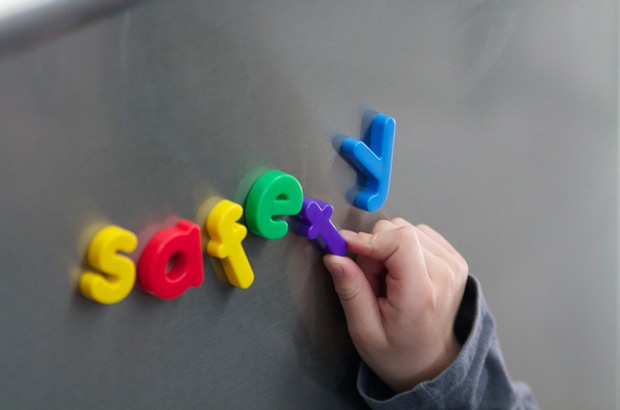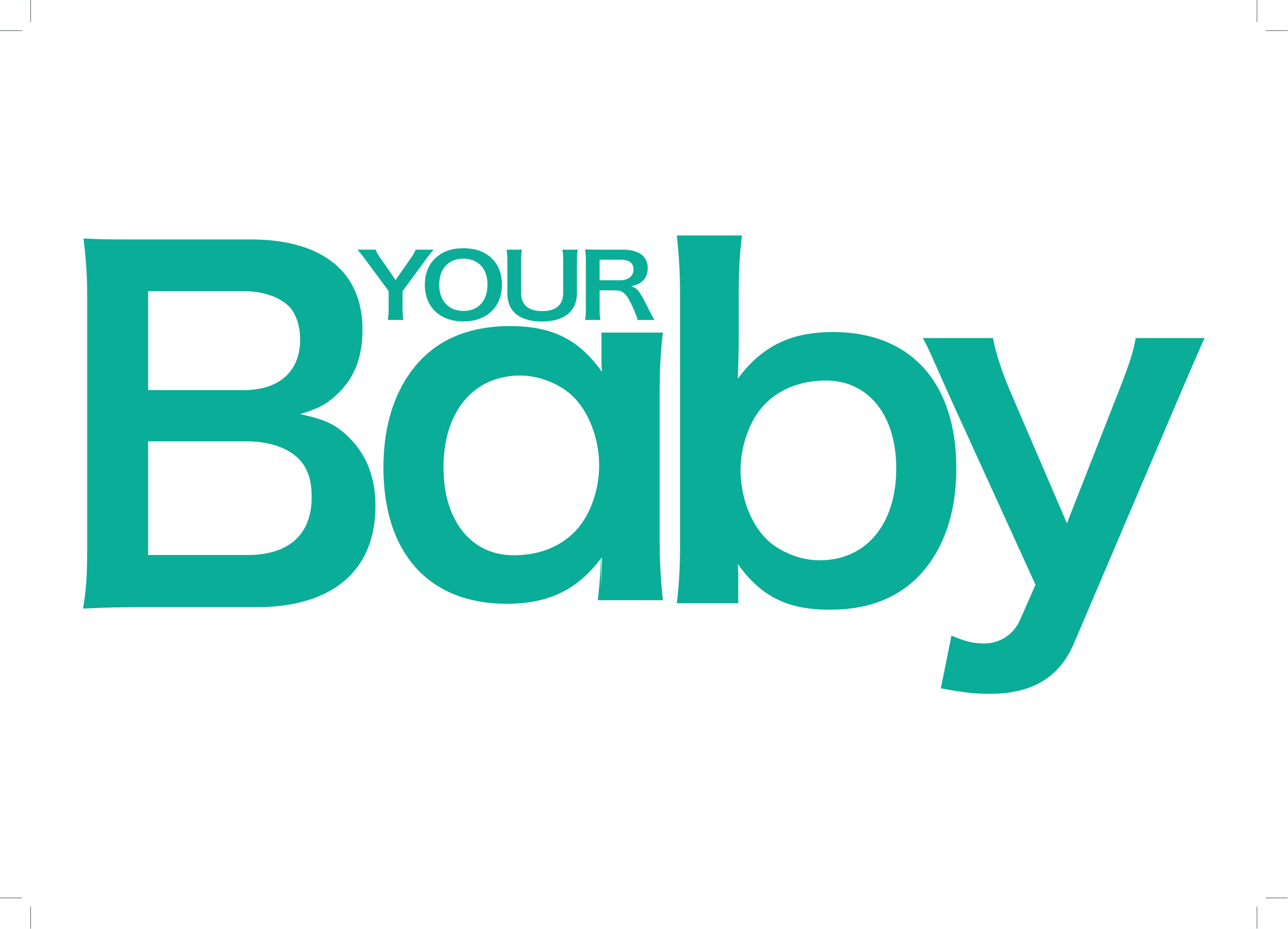
Your toddler is a walking, babbling source of energy and curiosity, which is wonderful – as well as exhausting!
It's no wonder many parents start to investigate daycare centres over home-based childcare at around this age: a fun, safe and stimulating environment seems to be just what Junior – and many an exhausted parent – needs.
But whether you're at work wishing you could spend more time with your little Energizer bunny or glad to be able to wave him off to a happy place for a few hours, you probably want to select the best possible place to which to entrust your child.
Here are the ten boxes you want your daycare centre to tick before you opt-in and sign up, consisting of the four absolute must-haves as well as six other should-haves.
Also read: Find out how serious that rash is in our #infantillness series here
THE BARE NECESSITIES
A Meeting of Minds
Like in any relationship, when it comes to you and your child's preschool, you're not going to love absolutely everything about each other. That's just impossible.
So select a place that seems to align itself most closely with your values, ethics and belief system.
Montessori schools are about encouraging free play and creativity over structure, religious schools will allow your child to grow up with fellow practitioners of the faith, some schools are "lovey-dovey, touchy-feely", and others more focused on academic learning.
Can you see yourself joining their "village"? For Lisl Vermaak, her choice was made when, during her tour of the Joy For Life nursery school in Johannesburg (which coincided with a school sports day and parents' picnic), she was offered a glass of champagne by the principal!
Does the school make you feel at home? If it fails in an area that is non-negotiable for you, abandon ship and look elsewhere if you possibly can.
Safety first
Accidents can occur even in the most responsible and caring environments, but neglect is inexcusable. Make sure the facility you are considering is clean and safe.
In terms of Section 30 of the South African Child Care Act, every childcare facility for more than six children must be registered with the Department of Social Services.
Ask to see the registration certificate. Registered facilities have been vetted for a range of child safety features, such as adequate space and ventilation, cooking and ablution facilities, emergency action plans, and many more.
Registration is free, so there is no reason for your facility not to have its certificate, nor should registered facilities need to be more expensive, yet South African fly-by-night and unregistered crèches exist.
You don't want to see video footage of your child being mistreated appear online or on the news, as happened at a daycare centre in Phoenix, Durban, in September 2021, where the principle was caught on camera, kicking a two-year-old. The child's father opened a case at the local police station.
Go to proper lengths to reassure yourself that your child will be physically safe at school.
Also read: Crèche, daycare, nursery school or preschool?
A school is its staff
In addition to physical safety, you want your child to go into an emotionally safe space. Who are the staff at your prospective school?
You require a criminal-free zone at the bare minimum.
Child molesters are attracted to places where children are, such as schools, churches, sports clubs and crèches, by the nature of their mental illness.
Ensure that staff have police clearances and that there seems to be a trusting relationship between the school's owners and its staff.
Childcare is notoriously poorly paid work, so a high staff turnover is not uncommon – unless you are prepared to pay well above standard school fees – but constant staff changes due to endemic unhappiness is a problem.
Good signs are laughter, friendliness, and people who comfort crying or lost-looking children. Some staff at least should have childcare or early learning qualifications.
First Aid
A knowledge of basic first aid procedures is another non-negotiable (check whether the staff have completed relevant courses).
Whether your child has had a bad fall, been poisoned, or had a severe allergic reaction to a bee sting, your school's ability to respond correctly quickly can avert a tragedy.
Luique Kokoszka's daughter was struggling to breathe with a possible asthma attack, and the preschool called an ambulance before even contacting the parents.
"By the time I arrived, not knowing they were worried enough to have called an ambulance, they had prepared a cup of water, a dolly (my daughter's obsession) and a school cellphone for me to take along, with my husband's number and the school number already programmed in it," she says.
"I could just focus on calming Franczeska down to go in the ambulance. It was so organised and thoughtful to me and my daughter in a time I was not able to focus on the practicalities of what would be needed at the hospital."
Also read: WATCH | How your child's screen time influences their diet
THE NICE-TO-HAVES
Class size
Depending on your child's age and personality, look for a preschool with as small a class size as your budget allows.
Under-threes in particular need plenty of individual attention and can get "lost" (unhappily overlooked or ignored) easily.
When you observe a class, see whether the teachers and class assistants split the class up into smaller groups for activities or try to spend some one-on-one time with each child.
Mutual respect
Your school's broad ethos may match your preferences, but there will be details about which you disagree. If a school can implement your choice without necessarily agreeing with it, it demonstrates respect for your parenting.
When Karen Hansen decided to introduce solids to her second son, six-month old Callan, using the baby-led weaning method, it was an unfamiliar choice for the staff at My World Early Childhood Development Centre in Johannesburg.
While they would usually spoonfeed porridge, in this instance, they were asked to allow the little boy free rein with his own spoon and bowl. It may have seemed like an eccentric request – but it was adhered to with a bemused smile.
PS: If you have found this sort of school, you have found gold. Don't abuse it by making your requests unreasonable.
Also read: Your baby's brain explained: A Parent24 Series
A good reputation
As with restaurants or movies, if your friends like it; there's a greater chance you will, too. You don't get a good reputation by chance, so a nursery school will want to guard it.
This kind of word of mouth is the best kind of virtuous circle.
A stimulating environment...
You don't want a barren preschool where children wander around aimlessly for hours. They shouldn't be forced to sit still for long times either.
A good nursery school is filled with opportunities for engaging the interest of a child: blocks, bikes, books, crayons and sandpits.
There should be no TV in plain view, and children should not regularly watch television as part of their school day.
Instead, storytime, where teachers read books or read stories to the children, should be prioritised, in order to stimulate little imaginations.
Throw in educational toys and activities and a good mix of free time alternated with structured activities and you're on to a winner.
Also read: 'Messy play? No thanks!' say 49% of parents in latest study
...but not an overwhelming environment
This is a double-edged sword: many parents today pressurizes even very small children into many achievement-orientated activities because they expect a dog eat dog adult world to be their children's inevitable future.
But most toddlers are exhausted and stimulated enough just from learning how to be two or three years old, and how to coexist in a social world.
Our advice: don't worry too much about cramming a very small person's day full of extramural activities and anxiety-provoking expectations just yet.
Your child wants to go
Your child is the one who has to spend his day there, so don't forget to evaluate his judgement of the facility.
When Nicolene van Loggerenberg mistakenly took her son back to the Small World Playgroup a day early after a recent holiday, he was actually upset to find it closed!
"To help him, we wrote a 'letter' to the teacher from him and placed it in the postbox," recalls Nicolene. "I SMSed the teacher to let her know to look out for it.
But I didn't expect what happened next: a message came through from the teacher later in the day saying we should check our postbox.
She had written back, "a letter full of pictures of the holiday and saying how she was looking forward to seeing my son, Tobias (four) the next day."
No wonder he loves it there! An eagerness to be at school and a good relationship with your child's teacher are an undisputable sign of a good preschool.
Of course children are somewhat unreliable judges: their favourite place of all might be at home with their parents, and they may protest against any alternative, no matter how lovely.
However, once your child has had a chance to settle in for a few weeks or months, or after an initial bit of resistance in the morning, he should be happy at school.
If not, there's a problem. A really loving school will send you pictures or videos of activities throughout the day to set your mind at ease if you have an early morning protester
Also read: Why does my toddler suddenly hate everyone?
TIPS FOR A TEAR-FREE DROP-OFF
1. In the days running up to school, talk your child through the process.
"Oh boy, we are going to school! You and Mommy are going to drive in the car, get to your school, meet lots of new kids. Then your teacher will start playing with you, and the mommies and daddies have to go home. but we will come fetch you again soon."
2. Model excitement about starting school (even if you feel nervous).
3. Try to arrive at the same time as other kids so that your child sees his experience of being dropped off is normal as other kids are doing it too.
4. Depending on your child's personality, spend 15 minutes or less settling him in.
Be guided by the teacher but try to leave quickly and calmly once you have said goodbye. But don't sneak out as this can lead to mistrust! If your child starts crying or is very upset at the prospect of you leaving, you may need to spend a few more minutes calming him down in a quiet place, or even waiting until the teacher starts a fun activity that intrigues him.
5. For a very nervous child, you could stagger the amount of time he is expected to cope on his own at school. Start with an hour on the first day, gradually building up towards longer periods of separation.
6. Some children take a transitional object with them to school, to help them feel safe. For others, guarding a treasured object while coping with the new environment is an additional stress. Offer your child the option.
- Updated September 2021 -
Chatback:
Share your stories and questions with us via email at chatback@parent24.com. Anonymous contributions are welcome.
Don't miss a story!
For a weekly wrap of our latest parenting news and advice sign up to our free Friday Parent24 newsletter.




 Publications
Publications
 Partners
Partners















